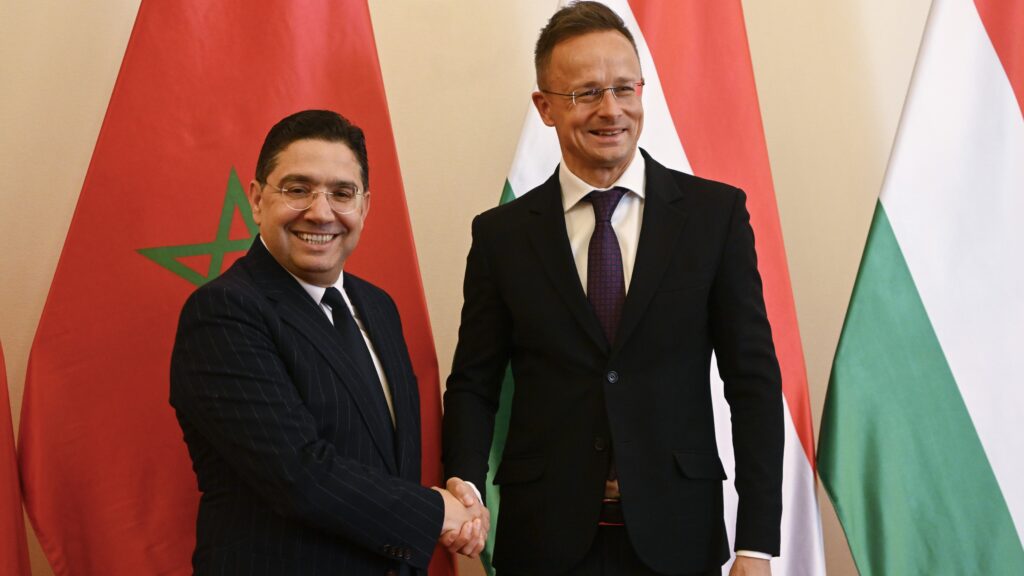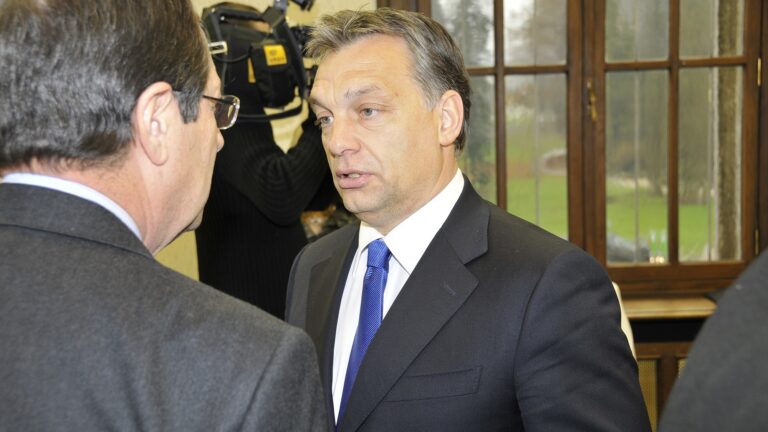During Dr Peterson’s last visit in June 2022, he was awarded the civilian class of the Grand Cross of the Order of Merit of the Republic of Hungary by President of the Republic Katalin Novák.
Due to popular demand and after his sold-out event in June 2022, the famous Canadian clinical psychologist and best-selling author Dr Jordan B. Peterson is coming back to Budapest, Hungary, on 9 May to give a lecture at the Papp László Budapest Sportaréna.
Jordan Peterson became a champion of freedom of speech after he publicly went against the Canadian Bill C-16 in 2016. The bill essentially entails that misgendering people by referring to them with the ‘wrong pronoun’ may qualify as hate speech. According to Peterson, this practically introduces ‘compelled speech’. A confrontation Peterson had with students of the university where he used to teach was videotaped and went viral, making the professor internationally famous. He has since become widely known as a voice of dissent regarding wokeism and also a best-selling author. Seven million people bought his first book titled 12 Rules for Life; over 50 million people are following him on his social media platforms; his events are almost always sold-out; videos of his university lectures always go viral, and hundreds of thousands of people say he helped them in critical phases of their lives.
As we reported in a previous Hungarian Conservative article on 3 January, the Ontario College of Psychologists (OCP) demanded that Dr Peterson, undergo a ‘mandatory social-media communication retraining’, or his clinical licence would be suspended. Since Peterson is unwilling to sign up for the retraining, he will most likely have to face a mandatory public disciplinary hearing—which he said he would videotape and put online. The Canadian board that threatened Dr Peterson has become so politicised that their disciplining fervour is based solely on political disagreements, as no complaints have been cited that were brought by people Peterson interacted with in a clinical context. Although Dr Peterson’s lawyers attempted to reach the Ontario College of Psychologists to have a date set for the disciplinary hearing, the Canadian board still hasn’t proceeded with the matter. In a recent tweet, Peterson wrote that the Ontario College of Psychologists hasn’t set a date because
‘they hope people will forget and they can proceed invisibly. This will not happen.
Quite the contrary. But they’re playing games and I’m sick of it. To say the least. Get at it, you utter cowards. Let the show trial begin.’
While his homeland, Canada, vilifies Dr Peterson instead of rewarding and recognising him as the nation’s pride, the Hungarian government and the people of Hungary give him all the respect he deserves. During his 2019 visit to Budapest, Dr Peterson was received by Hungarian Prime Minister Viktor Orbán and during his last 2022 visit, apart from his full house show at the Budapest Congress Centre Dr Peterson also gave a lecture at the Sándor-Palace, the official residence and offices of the President of Hungary, where he was awarded the civilian class of the Grand Cross of the Order of Merit of the Republic of Hungary by President of the Republic Katalin Novák. The Hungarian President of the Republic awarded Dr Peterson ‘in recognition of his outstanding scientific work in the field of clinical psychology, as well as his exceptionally dedicated and influential activities in defence of creative freedom and the education of youth.’
In a recent discussion with British-born demographer and documentary filmmaker Stephen J. Shaw, Peterson listed Hungarian family-supporting policies as the only known example of a government-issued incentive programme that has measurably slowed population decline. Peterson noted: ‘Hungary has put forward a series of policy transformations on the family support front, and…they have at least stopped the birth-rate decrease and increased it slightly.’ Although Peterson says that Hungary has not managed to turn the tide entirely, and the country is still way below population replacement levels, he suggested that Hungary is the only example of a slight rectification of this process of decline.








